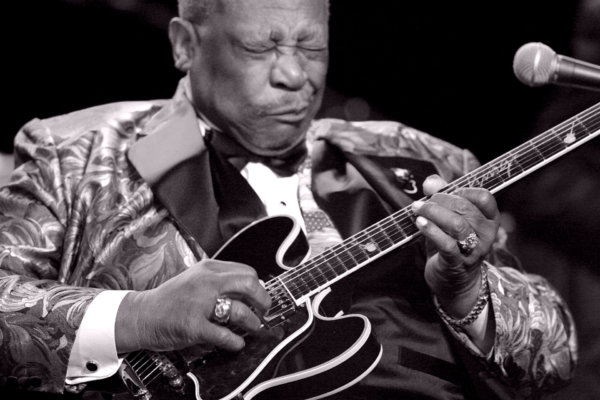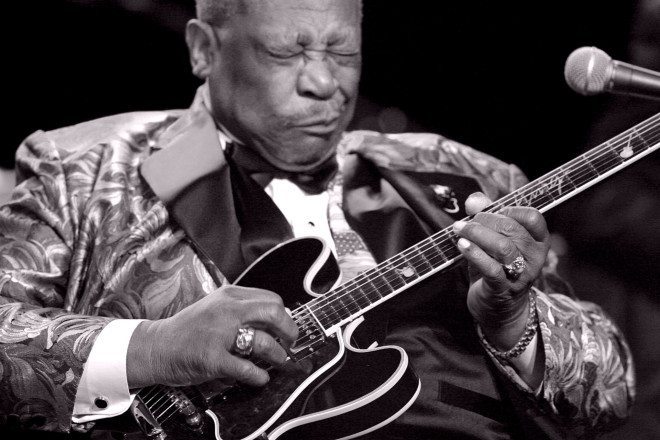We lost another legend. BB King, the man most people think about when they think of blues, died on Thursday. He was 89 years old.
His daughter, Patty King, said he died in Las Vegas, where he announced two weeks ago that he was in home hospice care after suffering from dehydration.
The Mississippi native’s reign as “king of the blues” lasted more than six decades and straddled two centuries, influencing a generation of rock and blues musicians, from Eric Clapton and Stevie Ray Vaughan to Sheryl Crow and John Mayer.
His life was the subject of the documentary “B.B. King: The Life of Riley” and the inspiration for the the B.B. King Museum and Delta Interpretive Center, which opened in Mississippi in 2008.
King’s enduring legacy came from his refusal to slow down even after cementing his status as an American music icon.
Even with a long list of honors to his name — a Grammy Lifetime Achievement Award, Rock and Roll Hall of Fame induction, a Presidential Medal of Freedom — he maintained a relentless touring schedule well into his 80s.
Throughout his career, King evolved with the times to incorporate contemporary trends and influences without straying from his Delta blues roots. Whether he was sharing the stage with U2 on “When Loves Comes to Town” — a scene memorialized in the 1988 concert film “Rattle and Hum” — or playing in the East Room of the White House with Buddy Guy, Mick Jagger, Jeff Beck and others, King’s single-string guitar notes trilled with an unmistakable vibrato from his hollow-bodied Gibson affectionately known as Lucille.










